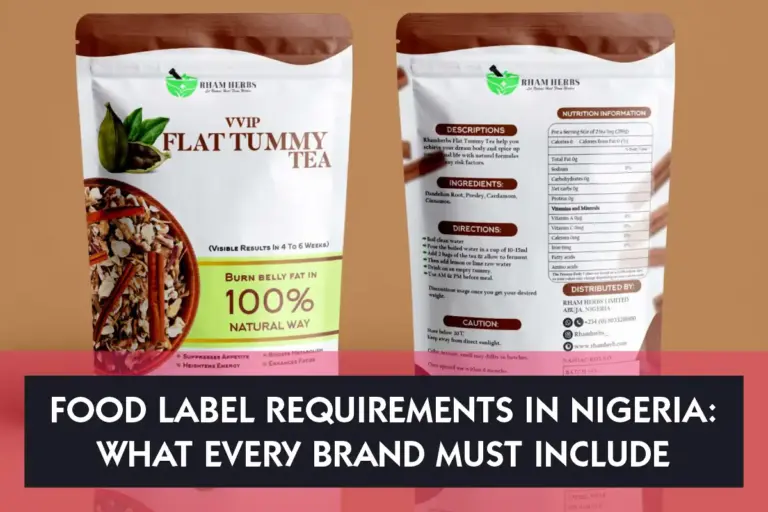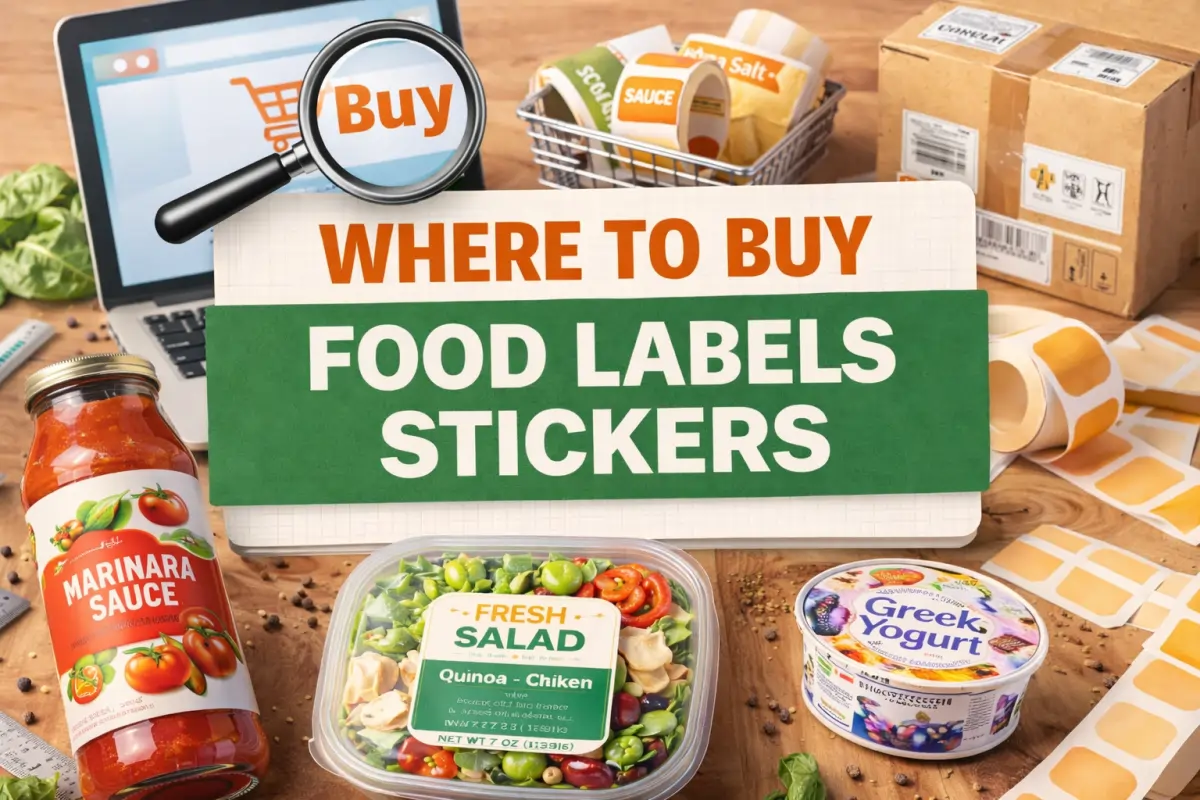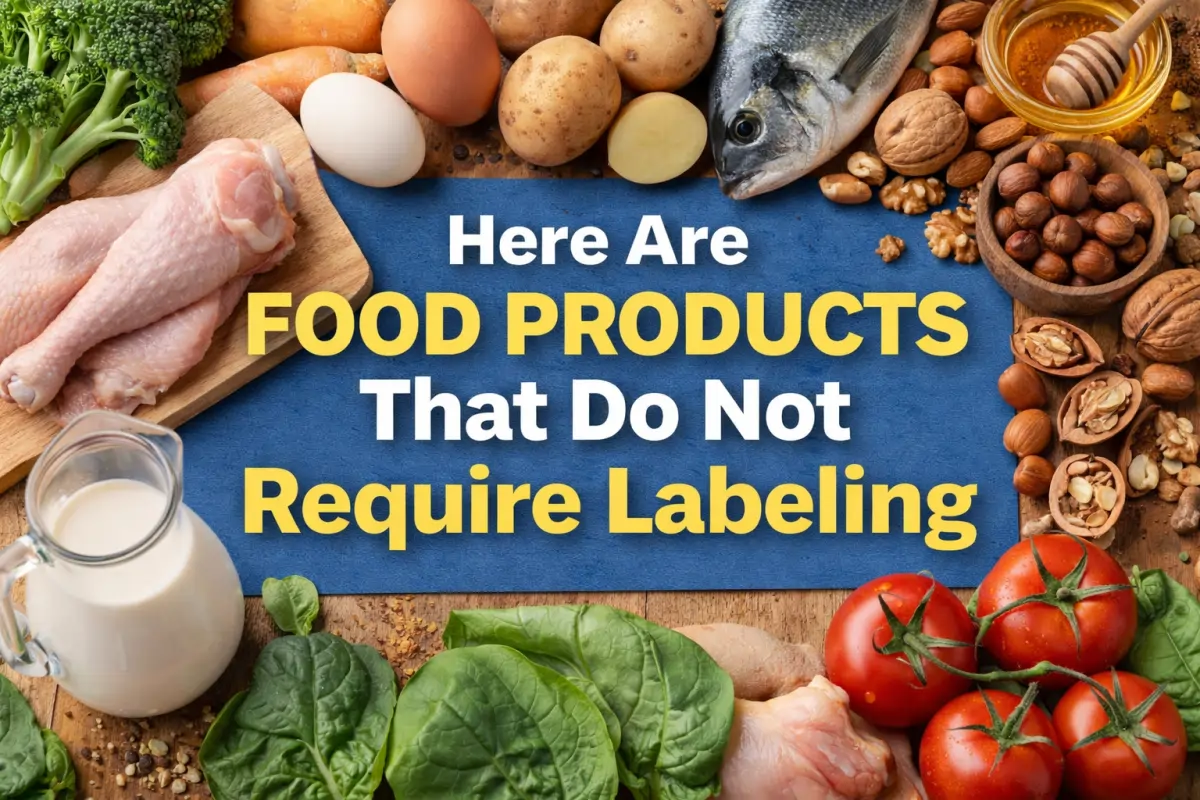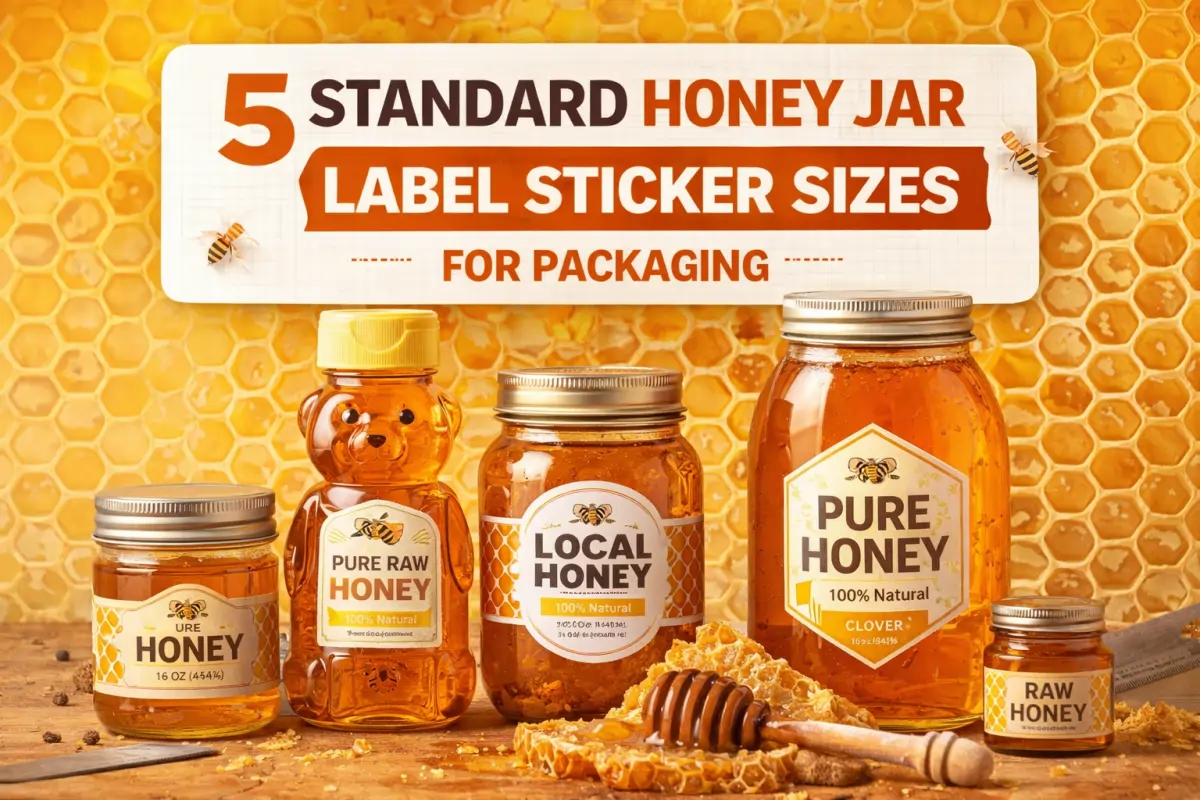When you pick up a packaged food item in Nigeria, you may notice some small texts printed on the container or wrapper. These texts are not just for design or fun. They are placed there to give you important information about what you are eating or drinking. The information helps you know if the food is good for you or not. It also helps you avoid buying something that might harm your health or go against your diet, religion, or medical condition.
In Nigeria, food labeling is not just about giving people useful information. It is also guided by law. The government, through NAFDAC, makes sure that food producers put the correct and required information on their product labels. This is to protect public health and also help consumers make good choices.
Required Information On A Food Label By Law In Nigeria
1) Name Of The Food Product
Every packaged food in Nigeria must clearly show the name of the product. This helps the buyer know what they are buying. The name should not be confusing or misleading. For example, if the product is fruit juice, it should be labeled as fruit juice and not something else.
If it is a flavored drink, the label should state it as a flavored drink and not pure juice. The law wants food names to be simple, honest, and not trick people into thinking they are buying something else.
2) List of Ingredients
The label must contain all the ingredients used to make the food. These ingredients must be listed in the order of weight or amount used. That means the ingredient used in the largest quantity should come first, followed by others in smaller amounts.
This is important because some people are allergic to certain ingredients like nuts, milk, or wheat. By reading the list, they can know if the product is safe for them to eat. Also, people who want to avoid certain ingredients for health or religious reasons can use this list to decide.
3) Net Weight or Volume
The label must also show the quantity of the food inside the package. This could be in weight (grams or kilograms) or volume (milliliters or liters). This helps the buyer know how much food they are getting and whether the price is fair.
For example, if two products cost the same but one has more weight or volume, the buyer can choose the better option. This information must be clear and easy to see.
4) Name and Address of the Manufacturer
The law requires that the name and address of the person or company that made the food be printed on the label. This is to help the buyer know who is responsible for the product. In case of any problem, complaint, or emergency, the buyer or the authorities can contact the company.
Want To Print Something?
The address must be complete and real. If the product was imported, the label must also show the name and address of the importer or distributor in Nigeria.
5) Manufacturing and Expiry Dates
All packaged food products in Nigeria must have the date they were manufactured and the date they will expire. These dates are usually written as day, month, and year. This helps the buyer know how fresh the food is and how long it can still be eaten safely.
Eating food that has expired can be dangerous to health. That is why these dates must be clearly printed and not altered in any way.
6) Storage Conditions
Some food items need to be stored in special ways to remain safe and fresh. For example, some need to be kept in a cool place, while others must be refrigerated. The label must state how the food should be stored after opening or before use. This helps the buyer keep the food safe and avoid spoilage or food poisoning.
7) Usage Instructions
If a food item needs to be prepared in a certain way before eating, the label must include clear instructions. This is common for food that needs to be cooked, mixed, or heated.
These instructions help people prepare the food safely and get the best result. For example, if a drink powder must be mixed with water in a certain amount, that must be stated.
8) Warnings or Caution Statements
Some food items may not be suitable for children, pregnant women, or people with certain health conditions. If a food product has such risks, the label must show a warning or caution. This helps protect vulnerable people from eating something that could harm them. An example is energy drinks, which are often not recommended for children or pregnant women.
9) Nutrition Information
The food label must also include nutrition facts. This includes the amount of energy, calories, protein, fat, carbohydrate, sugar, fiber, and salt. Sometimes, it also includes vitamins and minerals. This helps buyers know the health value of the food they are eating.
People who are watching their weight or have health conditions like diabetes or high blood pressure can use this information to choose better foods.
10) Allergen information
In addition to the list of ingredients, food labels must also clearly state if the product contains common allergens like peanuts, milk, eggs, wheat, soy, or fish. This is very important for people who have food allergies. A small amount of an allergen can cause a serious reaction in some people, so this warning helps them stay safe.
Want To Print Something?
11) NAFDAC Registration Number
All packaged food products in Nigeria must be registered with NAFDAC. Once the product is approved, it is given a registration number. This number must be printed on the label. It shows that the product has been tested and is safe for consumption. If a food product does not have an NAFDAC number, it means it may not be legal or safe to eat.
12) Language Used On The Label
In Nigeria, the law requires that all information on a food label must be written in English. This is because English is the official language and is understood by most people in the country. If the label includes other languages, the English version must still be clear and easy to read.
In Nigeria, food labeling is not just a matter of choice. It is a legal requirement that protects the health and rights of consumers. By reading food labels carefully, you can avoid health risks, get value for your money, and make better food choices. If you are a food producer, you must follow all the labeling rules to avoid punishment and build trust with your buyers.




